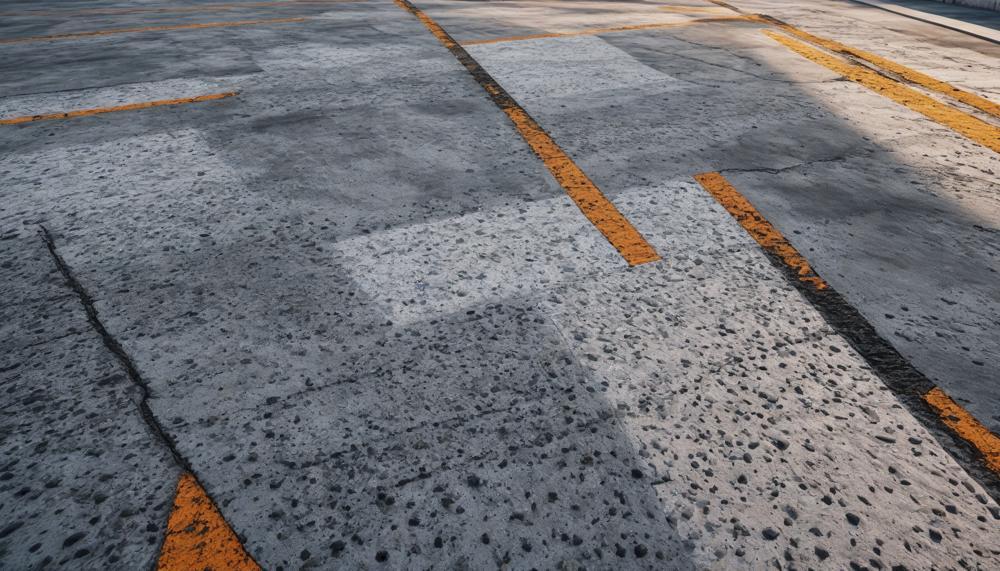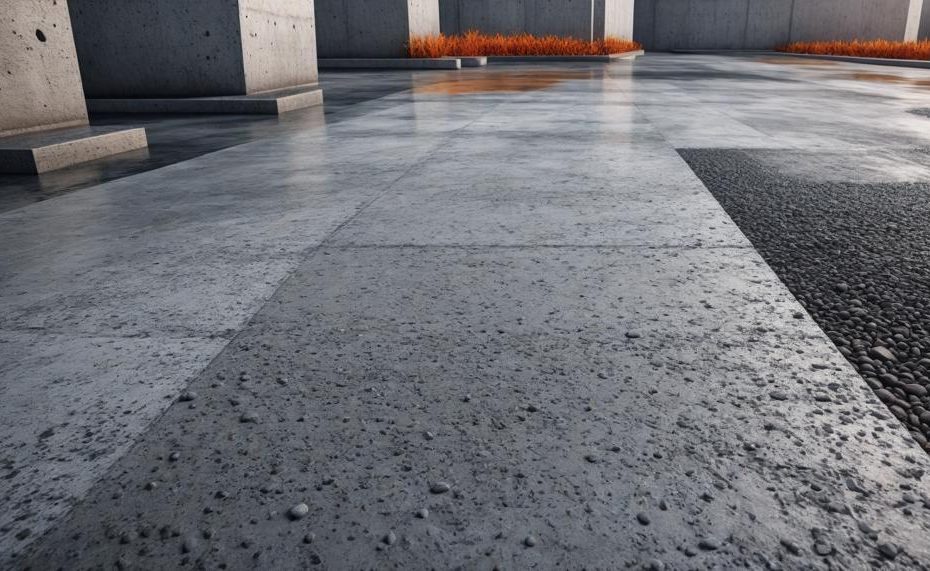Disposing of concrete might not be the first thing on your mind when tackling a renovation project, but it’s a task that demands careful attention. Concrete is notoriously tough to get rid of, thanks to its weight and incredibly slow decomposition rate.
While the go-to method is often hauling it to the dump, this isn’t exactly the greenest choice. Luckily, there are smarter, more eco-friendly options available.

Key Takeaways:
- Recycling: Drop off concrete at a construction and demolition recycling center to give it a new life.
- Local Suppliers: Many local concrete suppliers will take your old concrete and recycle it for resale.
- Roll-Off Dumpsters: Renting a dedicated dumpster can make disposal more manageable, but remember, it needs to be all concrete, no mixing with other materials.
- Landfill as Last Resort: If all else fails, you can take it to a landfill, but this should be your final option.
By choosing the right disposal method, you can minimize environmental impact and even support the recycling industry. Let’s dive into the best ways to handle your concrete waste responsibly.
Contents
How do you properly dispose of cement?
Disposing of cement safely and in an environmentally-friendly manner involves several steps. Here’s a detailed guide:
Recycle Concrete
- Concrete is highly recyclable and can be broken down and reused in various construction projects. Take your concrete waste to a construction and demolition recycling center where it can be processed and repurposed.
- Local concrete suppliers may also accept old concrete for recycling.
Use a Roll-Off Dumpster
- Renting a roll-off dumpster is another practical solution. Ensure the dumpster is designated for concrete only to avoid contamination with other waste materials.
- Contact your local waste management company to arrange for a dumpster rental that suits the amount of concrete you need to dispose of.
Drop-off at a Transfer Station
- You can manually transport small amounts of concrete to a local landfill or transfer station. Confirm with the facility that they accept concrete waste before making the trip.
Designated Disposal Areas
- Always dispose of concrete waste in designated areas. Check with local environmental authorities for guidance and compliance with local regulations to ensure proper disposal practices.
Consult Local Authorities
- If you’re uncertain about how to dispose of your concrete waste, reach out to local environmental authorities or waste management services for advice. They can provide specific instructions based on local policies and regulations.
Consider Environmental Impact
- When disposing of concrete, think about the environmental impact. Avoid dumping it in unauthorized areas as this can cause significant environmental harm.
Why do you need to dispose of concrete safely?
Improper disposal of concrete poses significant risks to both the environment and public safety. Here’s why you need to dispose of concrete safely:
| Environmental Pollution | Concrete waste can leach harmful chemicals, including alkaline substances, into the soil and water sources. This contamination can disrupt local ecosystems and harm wildlife. |
| Water Contamination | When concrete is improperly discarded near water bodies, it can raise the pH levels of water, leading to the destruction of aquatic habitats and making water unsafe for human consumption. |
| Air Quality Issues | Dust from broken concrete can contribute to air pollution, exacerbating respiratory problems for people living nearby. Prolonged exposure can lead to serious health issues. |
| Physical Hazards | Chunks of concrete left in inappropriate places can be a safety hazard. They can cause accidents, injuries, and damage to vehicles or machinery. |
| Legal Repercussions | Improper disposal of concrete may violate local regulations, leading to fines and legal action. It’s crucial to follow local guidelines for waste management to avoid these consequences. |
For more details on proper disposal methods, you can refer to guidelines from local authorities or trusted resources like EPA.
How much does concrete disposal cost?
The average cost of disposing of concrete properly varies based on several factors, such as landfill fees, recycling facility charges, and professional service fees. Here’s a breakdown:
| Disposal Method | Cost Range | Details |
| Landfill Fees | $35 – $100+ per ton | Landfills charge based on weight. Prices vary by location and specific landfill policies. |
| Recycling Facility Fees | Varies | Fees depend on the facility’s policies and the condition of the concrete. Some facilities may offer lower fees or even pay for clean, recyclable concrete. |
| Professional Contractor | Varies | Contractors may charge for removal services, though some might offer free disposal if they recycle the materials. Prices depend on the volume of concrete and project complexity. |
Recycling concrete is often a more eco-friendly and sometimes cheaper option compared to landfilling. Facilities may charge less or even pay for uncontaminated concrete. For those opting for professional services, comparing quotes from different contractors can help manage costs.
The benefits of choosing EZ Cleanup for your concrete disposal
The benefits of choosing EZ Cleanup for your concrete disposal are multifaceted and significant. Here’s why EZ Cleanup stands out:
- Environmental Responsibility: EZ Cleanup prioritises eco-friendly disposal, ensuring that concrete is recycled wherever possible, reducing landfill usage and promoting sustainability. By choosing their services, you contribute to a cleaner, greener community.
- Compliance with Local Regulations: EZ Cleanup’s expertise in Philadelphia’s local regulations guarantees that all disposal activities adhere to legal requirements, avoiding potential fines and legal issues. Their knowledge ensures a smooth, lawful process.
- Time and Effort Savings: Disposing of concrete can be labour-intensive and time-consuming. EZ Cleanup handles all the heavy lifting, transportation, and disposal, freeing you from the physical and logistical burdens. This convenience is invaluable for busy individuals and businesses.
- Safety: Handling concrete disposal on your own can pose safety risks, from physical injuries to environmental hazards. EZ Cleanup’s professional team uses appropriate equipment and techniques, ensuring safe handling and disposal, protecting you and your surroundings.
- Cost-Effective: While disposal costs can vary, EZ Cleanup offers competitive pricing and the potential for cost savings through recycling initiatives. Their streamlined process can be more economical than DIY disposal or less efficient services.
- Hassle-Free Service: EZ Cleanup provides a seamless, stress-free experience. They manage the entire process, from collection to disposal, allowing you to focus on other tasks without worrying about the logistics of concrete waste management.
Conclusion
Disposing of concrete can be a surprisingly challenging aspect of renovation projects due to its weight and durability. However, proper disposal is crucial for both environmental and logistical reasons. Instead of defaulting to the landfill, consider these sustainable alternatives.
Recycling is a top choice, allowing your concrete to be repurposed for new construction projects. Many construction and demolition recycling centers are equipped to handle this process, and local suppliers often accept old concrete for similar purposes. Another practical option is renting a roll-off dumpster specifically for concrete, ensuring you keep the waste separate from other materials.
For smaller quantities, you can transport concrete to a local transfer station or designated disposal area, but always verify their acceptance policies beforehand. Consulting local authorities can also provide specific guidance and ensure compliance with regional regulations.
The environmental impact of improper disposal is significant, from soil and water contamination to air quality issues and physical hazards. Proper disposal not only mitigates these risks but also supports recycling initiatives, fostering a more sustainable construction industry.





